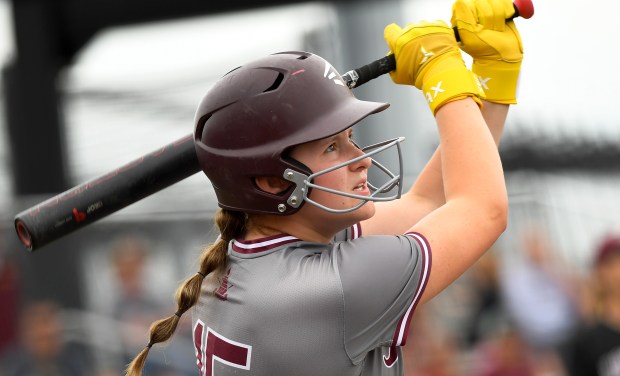Valparaiso City Services outlined a detailed plan of more than $17.5 million in water improvements to be funded by bonds and a gradual 7% water and sewer rate increase over five years, all unveiled during a presentation March 25 at the Valparaiso City Council meeting.
Valparaiso City Services Executive Director Steve Poulos and his staff hosted a one-hour open house for the public to field questions before he explained the plan in further description and timeline during the council meeting.
Resident Beth Walden attended both the open house and council meeting to learn more about the adjustment of future water rates.
“I just moved to Valparaiso with my husband Dave almost four years ago, after living in Minnesota,” Walden said.
“We both graduated from Valparaiso University in 1983 and liked the community and so we decided to return to Valparaiso to make it our new home. We want to stay informed about what’s in our future.”
Poulos reminded residents that monthly water and sewer rates fund “operations, maintenance, debt payments, emergency reserves and future capital improvement projects.”
“A significant number of water and wastewater treatment process units within the city of Valparaiso are 35 to 60 years old, and approximately one-third of the city’s ground infrastructure is at least 50 years old,” Poulos said.
“The rate adjustments, if approved, would begin in the summer of 2024 and will be phased in gradually through 2028.”
The March 25 presentation only provided proposed financial details, timeline and future rate structure to the council, with a public hearing and council vote still forthcoming before any action on proposed plans.
An example of the rate increase, if the proposal passes, was explained to the council and public using a current March 2024 water and sewer bill of $71.78 for an average use of 4,000 gallons a month.
If the new rates are implemented by July 2024, that same monthly bill would increase to $88.88, followed by a further increase to $95.76 by July 2025, then $103.21 in July 2026 and up to $111.21 in July 2027 before hitting the final tier of $119.79 in July 2028. Also added to that monthly bill would be the other fixed fees of roughly $2 in taxes, $12.50 for stormwater needs and $19.50 for garbage service.
Poulos explained the strategic planning and master plan studies include the Valparaiso City Utilities Board of Directors initiating engineering designs for necessary improvements to the city’s water and wastewater facilities, “ensuring the ongoing modernization of systems, environmental sustainability, regulatory compliance and room for planned growth.”
Poulos said the top priorities are important capital projects, evaluated costs and the effect on utility rates.
“Inflation, plus increased costs for labor, regulatory requirements and the needed infrastructure upgrade are why we must evaluate rates for reliable quality and services our community,” Poulos said.
Poulos said Valparaiso has more than 550 miles of water pipes and sewer lines around the city limits and some of the aging existing pipelines as addressed in the proposed project with a total price tag of $23 million, including an earlier phase started in 2023, all financed through bonds to include eight new wells and transmission lines. Poulos said engineering for phases two and three, starting this year for what is a three-phase plan, is expected to cost $2.3 million, with construction of the first four wells costing $5 million.
“Our completed phase one of this process began with our 2013 water source study to address our need for groundwater looking up to 20 years in the future to get us to where we are now,” Poulos said.
“The eight new wells will replace the aging wells we have at the Porter County airport as well as 5 miles of transmission line and upgrades to our airport water plant for filters, pipes, controls and electrical. This will give us an additional water storage of 2 million gallons and we’re looking at a nearly $18 million bond issue.”
The Valparaiso City Council will hear and vote on the first reading of the proposed rate and bond ordinance at the April 8 city council meeting. A second reading and public hearing before a final vote is planned for the April 22 city council meeting, to allow the proposed implementation of the rate increase to become effective by the July 2024 billing cycle.
Philip Potempa is a freelance reporter for the Post-Tribune.





